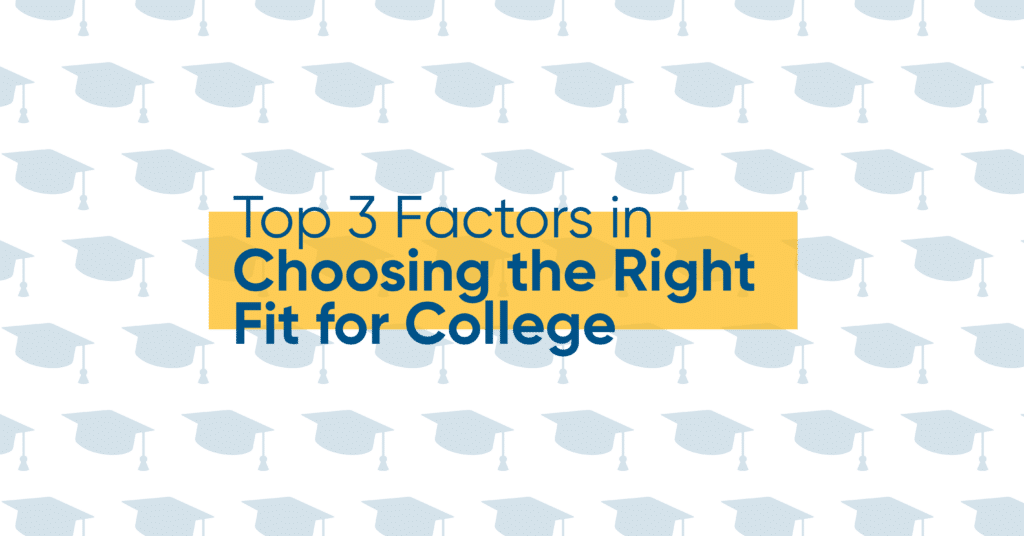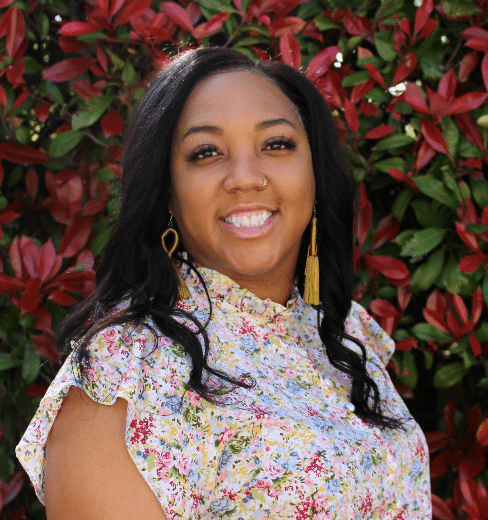
Choosing the Right Fit for College: Top 3 Factors to Consider
by Ivette Chavez and Dr. Kristina Wright
Congratulations, you’ve been admitted to a college or university!
The California State University recently published an article listing 10 benefits of earning a college degree – including college graduates earning more money, experiencing less unemployment, and volunteering more.
Higher education can be a game-changer for your and your family’s future. College acceptances can also bring up a lot of questions and decision points. As you celebrate this momentous achievement, you might be thinking: “how do I go about making a decision?”
In this resource article, the Making Waves College and Alumni Program team shares the top three factors to consider when choosing the right fit for college.
Academic Fit
The academic rigor and the academic resources of a college or university should be a priority consideration in your decision-making process.
To find the right academic fit, you want to be sure that the college or university offers the following:
- Majors or areas of study in which you are interested.
- An academic level and a learning environment that fit your learning pace and style.
- Resources that support student learning and success.
Social and Emotional Fit
The right social and emotional fit is important for your wellbeing in college since being on a college campus will bring different social and emotional experiences than you’ve experienced in high school.
To consider the right social and emotional fit, consider the following offerings colleges or universities might provide:
- Residential (most students live on campus) versus commuter campus (most students commute to campus).
- Student and social activities, events, clubs, and organizations within your areas of interest.
- Career development and opportunity for internships and jobs.
- Support services, such as health centers, mental health services, and tutoring support.
- Distance from home (and costs associated with transportation).
Financial Fit
Financial fit and affordability are key to making a college decision and ultimately graduating with as little debt as possible.
Make sure to review your financial aid award letters carefully, including the following steps:
- Compare the cost-free financial aid – meaning grants and scholarships – versus loans or other financial aid that you need to pay back later.
- Consider the cost of attendance, including the tuition, room and board (housing and food), and fees for items, such as health insurance.
- Consider other costs, such as books and transportation.
In addition, be sure to stay organized, especially if you’ve been accepted to multiple colleges or universities.
The arrival of financial aid award letters varies by institution, and it is highly likely that there will be different portals for accepted students – so set up a system for keeping track of acceptance and award letters, special dates, and portal logins. If you need to provide further verification for your Free Application for Federal Student Assistance, or FAFSA, start that process early to ensure there aren’t delays.
Next Steps
While there are many resources and many people – including the College and Alumni Program team at Making Waves, your family, friends, counselors, and teachers – to help you in making a choice about college, the decision is up to you.
Once you make a decision, you will complete your State of Intent to Register (SIR), submit an enrollment deposit, register for orientation, and submit a housing application as applicable.
Congratulations on this next step of your educational journey!
Dr. Kristina Wright
ABOUT MAKING WAVES FOUNDATION
With a unique focus on college attendance and graduation, Making Waves Foundation supports historically underrepresented and underserved students in pursuing their dreams. Making Waves Academy is a public charter school in Richmond, California, educating more than 1,100 students and Making Waves Foundation’s college success program, known as CAP, provides coaching, scholarships, financial literacy, and career support for more than 500 college students as well as a network for more than 500 Wave-Maker alumni.

